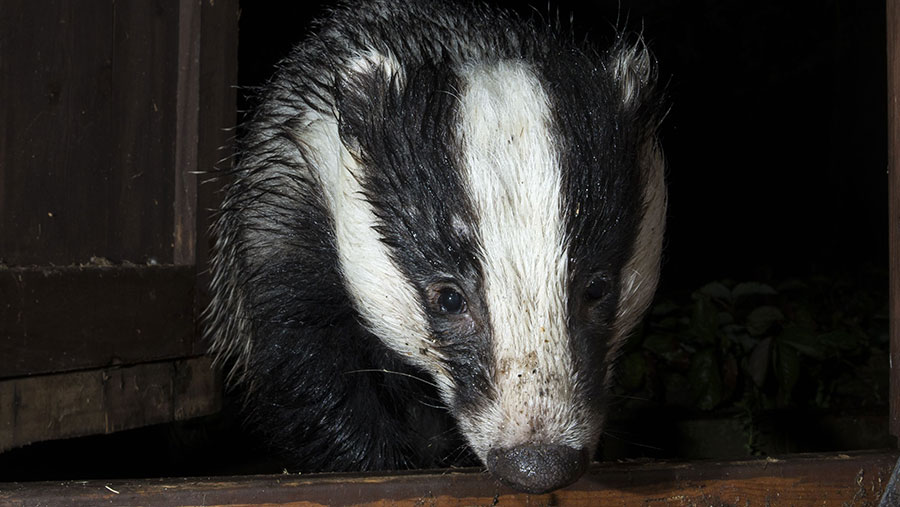Defra plans long-term badger cull to control bovine TB
 © Richard Bowler/REX/Shutterstock
© Richard Bowler/REX/Shutterstock Defra has unveiled plans to continue badger culling beyond an initial four-year period in a bid to control bovine TB in hotspot areas of south-west England.
Badger culls in 10 hotspot areas had proved successful, said the department, but ongoing control was needed to ensure a prolonged reduction in bovine TB.
It comes as Defra said it would apply for official TB-free status across more than half of England next year – two years ahead of schedule.
See also: Badger cull ends across all 10 areas
The application for Officially TB-Free (OTF) status would cover the low-risk area for the disease, which encompasses the north and east of England.
News of the application came as Defra published results showing that badger culling to control bovine TB in 10 areas of south and west England had delivered successful outcomes.
Further measures
Defra has now launched a consultation outlining plans for further badger control measures in areas where culling has taken place for four years.
Dealing with bovine TB in England costs taxpayers over £100 million a year, said Defra.
It required the culling of 28,000 cattle in 2015 and caused devastation and distress for farmers and rural communities.
Gaining OTF status would boost trade opportunities and mean some herds required less regular TB testing, reducing costs for farmers, said Defra.
This would be the first time anywhere in England had enjoyed this status, making beef exports from the UK more attractive for trade partners around the world.
Achieving this status for the low-risk area was a key step in the government’s 25-year plan for the whole of the UK to be TB-free by 2038.
‘Significant milestone’
Defra secretary Andrea Leadsom said: “Gaining global recognition that more than half of England is TB-free will be a significant milestone in our long-term plan to eradicate this devastating disease.”
Mrs Leadsom said OTF status would open up new trading opportunities for farmers – although there was much still to do in the worst affected parts of the country.
“This shows that our strategy – combining practical biosecurity measures, a robust cattle movement and testing regime, and badger control in areas where the disease is rife – is right and is working.”
Results published by Defra on Friday (16 December) show that all 10 licensed badger culling operations achieved successful outcomes.
The government consultation on further measures opens the next steps for badger control in areas that have completed the first four years of intensive culling.
Disease reduction
Defra said ongoing badger control would mean that the disease reduction benefits it anticipated would be prolonged for many years to come.
Other new measures announced include the wider use of blood tests alongside the current skin test in so-called high risk areas of the disease.
Providing a more sensitive testing regime in TB-affected herds would help to minimise the risk of leaving infected animals in herds, said Defra.
The department has also announced plans for “more coherent powers” to manage the TB risk in pigs, sheep, goats, deer and camelids to bring them more in line with cattle controls.
This will include new statutory compensation arrangements for these species.
Online tool
Meanwhile, an online tool allowing farmers to view TB outbreaks close to their farm will be refreshed every fortnight rather than every month from early 2017.
Chief Veterinary Officer Nigel Gibbens said: “This year, we have seen that badger control can be delivered successfully on a wider scale.”
Further expansion in the coming years, alongside a robust cattle movement and testing regime, would allow the long-term reduction of TB across the South West and Midlands.
Defra said vaccinating healthy badgers remained part of the government’s long-term plan and could play an important role in preventing bovine TB spreading to new areas of the country.
Defra said it planned to resume the Badger Edge Vaccination Scheme, which supports private badger vaccination projects on the edge of hotspot areas, in 2018.
The government said it would also continue supporting farmers to take practical action to reduce the risk of TB infection on their farm.
This included support for a new TB cattle herd accreditation scheme, on-farm biosecurity demonstrations for farmers, and training for vets.
